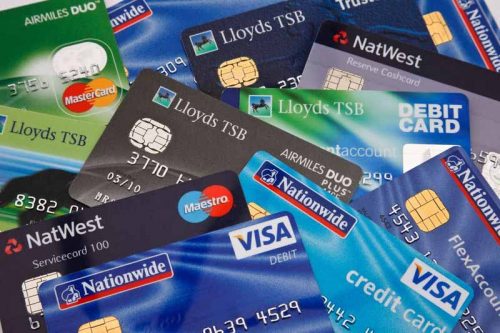How Credit Reports Work
How credit reports work
There are very few of us who can get through life without borrowing money at some point. After all, how many people do you know who could buy a house without getting a mortgage?
To some extent we are, therefore, dependent on those who are prepared to lend us the money we need. Credit is much more easily available these days – some say too easily – but, nevertheless, you still have to jump through some hoops to get what you want. If you want to be able to manage your money efficiently, particularly if you’re in debt, it’s as well to be aware of what those hoops are.
Lenders will base a decision on whether to lend you money on three factors: your application form, your credit files and your credit score.

Application Form
From this, the lender will not only get the basic information from you such as your name, age and address and how much you want to borrow but also how much you earn, whether you are a homeowner and what you want to borrow the money for.
Some of the questions might seem quite irrelevant to you – after all, why should it matter whether you are married, single or divorced? However, the information you give will be used as part of a lender’s credit scoring process, so it’s important for the lender to be able to build up a profile of you and your circumstances.
Credit Files
In case you aren’t aware of it, each time you apply for credit of some sort, whether it be a bank loan, credit card application or Hire Purchase, your prospective lender will carry out a search with their preferred credit reference agency to establish whether or not you are creditworthy.
Of the three factors that enable a lender to decide whether to loan you money, your credit files are probably the most important. Although only authorised organisations are permitted to gain access to them, they serve as an open book to those organisations about how well, or how badly, you manage your finances. Fortunately, you have a right to see them too so it’s a good idea to send off for them occasionally to make sure the information they hold is correct.
There are three credit reference agencies – Experian, Equifax and Callcredit – and they all hold information gleaned from the electoral roll such as your address details and the names of others who live at the property. They also contain details of any County Court Judgements and bankruptcies. Alongside that will be information passed on to them from various banks and building societies about your payment history for cards, loans, mortgages etc, that you already have.
Note that not all financial organisations share all the information they have on you with all three of the agencies, and most only refer to one of them when checking you out, so it’s quite likely that one agency does not hold a complete record of your credit history. However, since your payment records will affect how you decide to manage your finances, it’s important that the information any agency holds about you is up-to-date and correct.
So, what does a prospective lender see when they bring up your credit file?
Every time a search is carried out it is logged on your files and that information is available to every other lender who needs to access them. In some cases, this can go against you – for example, if you have approached several banks, it might appear that you have looking for lots of credit and have been turned down even though you may have a perfectly good reason for not proceeding. However, lenders are beginning to realise that a mere search may simply be an indication of a prospective borrower shopping around for the best deals and consumers can also ask lenders not to carry out a search in the early stages if they are simply making an inquiry.
At the moment, the details of anyone with the same surname living at your address will also probably show up since it will be assumed that your finances are linked in some way – for example if you are a husband and wife. However, if you’re living at home with your parents or sharing a house with a relative then you could be turned down for credit simply because they’re not particularly creditworthy.
If you go ahead with your application and you meet your monthly obligations on time, then your payment history for that particular borrowing will show up on your file as a series of zeros for each card or loan that you have. If you are late with your payments your track record is automatically altered even if you miss just one payment.
For example, let’s say you take out finance to buy a dishwasher over a six month period and you miss payments four and five and then catch up; your file will state 000120 ie: in month four you were 1 month behind and in month five you were 2 months behind.

Most prospective lenders aren’t too worried about the odd missed payment especially if you’ve clearly caught up and have a series of lovely zeros after the missed payments – sometimes people do simply forget to pay their credit cards, after all. It’s the Default notices and County Court Judgements which are most likely to be of concern and as these stay on your files for six years, even if you eventually manage to pay them off, it can still affect your chances of getting further credit. You’ll either be turned down flat or you’ll be charged a higher-than-usual interest rate.
There aren’t many ways to fix your credit files if they don’t look too good but you should certainly start by making sure that the information on them is correct. The credit reference agencies will rectify factual details if a mistake has been made.
If you have a bad record because of late payments, defaults or County Court Judgements, then there’s not much you can do to improve matters except to make sure that your payments are on time in the future. However, if you’ve missed a few payments for reasons that you think should be taken into account, you’re allowed to write a short explanation for your file so that it shows up when lenders run a credit search on you. For example, you might have been in hospital at that particular time or temporarily unemployed.
Ultimately, the only way to improve your credit rating is to pay off the debt. Lenders should automatically notify the agencies that any default is satisfied but it’s as well to check your files to ensure this is done. Alternatively, you can ask for a letter of satisfaction from the lender, which should then be sent to the agencies with a covering letter. Future lenders will at least be able to see that you did pay the debt off.
Be aware that certain things don’t look good on your credit report. Having too many cards and loans, even if you’ve been paying them off on time, might raise an eyebrow. The searcher will see how many credit cards you’ve got, the amount of credit that’s available to you and the balances you’ve got on each of them. They might wonder if you’re getting in over your head.
Equally you could be rejected for a loan or a credit card simply because you’re too good at paying off your debts and that simply may not be profitable enough for them. Don’t be too offended by this – take the trouble to find a lender who likes a good payer instead.


